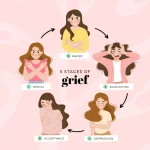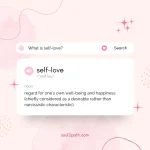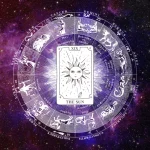Have you ever wondered why some people seem to attract good luck more than others? The secret might be simpler than you think. Good fortune often gravitates towards those who are creative, perceptive, self-assured, well-prepared, and generous. If you’re yearning to join the ranks of the fortunate, the good news is that with a strategic approach and a shift in mindset, you can indeed increase the luck in your life.
Strategies for Success
Success stories are a blend of two critical ingredients: the triumphant moment and the myriad failures that led to it. Luck, in essence, is a matter of probabilities. The more attempts you make and the more failures you endure, the greater your chances of success. This pattern is often overlooked, as people generally ignore the failures of others. However, those perceived as the luckiest often have experienced the most failures. To boost your luck, embrace the likelihood of failure, and consider these steps:
- Learn from Failure Many miss the opportunity to create their own luck because they fear failure more than they desire success. To enhance your luck, challenge this instinct. Take risks and welcome situations where you might not succeed initially.
The probability of luck increases not just with failures, but exponentially when you learn from these setbacks. Through these experiences, you uncover new ideas, unearth hidden talents, and discover innovative approaches to common paths. Learning from failure doesn’t require you to enjoy it, but it’s crucial to extract lessons from it. While your objectives might remain constant, the strategies to achieve them can always evolve.
- Spread Kindness Generosity can be a way of extending luck to others when they need it most. Whether it’s introducing someone to a potential job opportunity or offering a helping hand, kindness can build a network of supportive friends who, in turn, help you achieve your goals. Sharing luck with others often brings it back to you, especially when done unconditionally.
- Visualise Positive Outcomes The power of the mind in shaping reality is profound. Believing in a positive day can make it a reality, not through magic, but through an enhanced perception and awareness of opportunities. Expecting a good day makes you more attuned to positive events and more resilient in the face of adversity. A positive mindset opens you up to new possibilities and reduces fear.
- Embrace a Lucky Charm In addition to these methods, many believe in the power of a lucky charm. These items can boost confidence and focus, shifting attention away from the fear of failure. A personal token, especially one with sentimental value, can significantly enhance your sense of luck.
Understanding Your Own Luck
Your self-awareness is your best guide in understanding your capabilities, failures, and successes. Research indicates that both lucky and unlucky people have an intuitive sense when facing significant life decisions. The difference lies in whether they heed, interpret, and act on these instincts. If you struggle to connect with your inner voice, consider seeking guidance from a professional, such as a therapist or a life advisor.
In a world filled with challenges, luck can be persuaded to favour you. All it asks for in return is your time, attention, faith, and affection.










